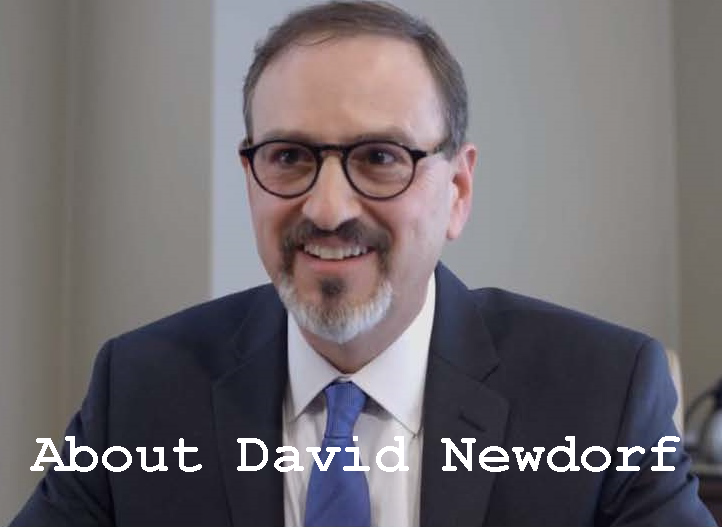Staying on the Cutting Edge
March 16, 2013 by David Newdorf
Filed under Lit Tip Of The Week:™ Practical Advice For Litigators
One of the ways that I stay current on the law — in addition to trying to shape new law — is by participating as an amicus curiae in appeals on issues that affect my clients. An amicus, or friend of the court, adds another perspective to the appeal in order to ensure that the possibly broad legal effects of a court decision will not depend solely on the parties directly involved in the case.
Last week (March 13, 2013), I was in Los Angeles arguing in the California Court of Appeal in the case of Corenbaum v. Lampkin, Docket No. B236227. I represented two groups, the League of California Cities and the California State Association of Counties. The appeal is from a trial verdict in an auto collision case. The issue is whether the amount of medical bills above and beyond what the insurance company has paid are admissible into evidence.
The Corenbaum case concerns an issue of determining medical expense damages that is a question in almost every tort case. With the advent of managed health care over the past few decades, insurance companies have been negotiating larger and larger discounts for medical services. But hospitals and doctors for the most part have not lowered the charges listed on medical bills to reflect the lower amounts actually accepted as payment in full. Hospitals and medical groups have kept their billing rates at higher levels while agreeing that they would accept significantly lower amounts as payment in full – often two-thirds lower. These days, the full medical bills are rarely paid by anyone, which has led one legal commentator to call medical bills “illusory.”
I have been litigating this issue since 2001, when I was appellate counsel in the case Nishihama v. City and County of San Francisco (2001) 93 Cal. App. 4th 298. Nishihama was one of the earliest California cases holding that a tort plaintiff cannot recover more in past medical damages than the amount the doctors and hospitals accepted as full payment from medical insurance.
This issue made its way to the California Supreme Court, which agreed with Nishihama in the case of Howell v. Hamilton Meats & Provisions (2011) 52 Cal. 4th 541. In the Howell opinion, the Supreme Court cited a hypothetical case I used to argue the issue in the amicus brief I wrote. One issue left open by the Supreme Court in Howell is whether the full, unpaid medical bills might be admissible for a purpose other than determining the award for past medical expenses. Plaintiffs have argued that the bills are evidence of the amount of pain and suffering (also called non-economic damages) on the theory that the full medical bills are a better indication of the extent of injuries than the lower amounts paid. This would seem to be contrary to the Supreme Court’s reasoning in Howell, which held that the billed amounts are arbitrary, unreliable and inadmissible to prove medical damages.
My amicus brief in Corenbaum v. Lampkin on behalf of the cities and counties is available by clicking the link here. In the Corenbaum case, in addition to my argument in support of defendants, the Consumer Attorneys of California argued as an amicus in support of plaintiffs. You can read the Consumer Attorneys’ brief on the group’s website.
The argument last week was especially exciting for me because I was arguing along side a partner from Horvitz & Levy, the pre-eminent appellate law firm in California. That was also the firm that gave me my first job in the law, a summer associate position while I was in law school in 1992. In the audience was David Ettinger, the partner at Horvitz who hired me for that summer job. (Also in the audience were my parents, Arnold and Lois Newdorf, who had never before seen me in court.)
About California Litigation Firm Newdorf Legal
David Newdorf is managing attorney of Newdorf Legal, which represents individuals, businesses and public entities in trials and appeals. The firm’s practice areas include business disputes, business torts/interference with contract, breach of contract, breach of fiduciary duty, fraud, investment disputes, real estate, commercial landlord-tenant cases, and municipal law.
Mr. Newdorf worked previously as a trial lawyer and team leader in the San Francisco City Attorney’s Office and was a litigation associate at a major international law firm. Mr. Newdorf was recently listed, for the third year in a row, in Northern California Super Lawyers magazine, an honor reserved for 5 percent of the State’s lawyers based on nomination by fellow lawyers and evaluation of professional reputation and achievement. In a more unusual accolade, Mr. Newdorf was named “Badass lawyer of the week” by The Recorder’s blog, LegalPad.
For all of your litigation questions, contact Newdorf Legal, a San Francisco business litigation law firm.









